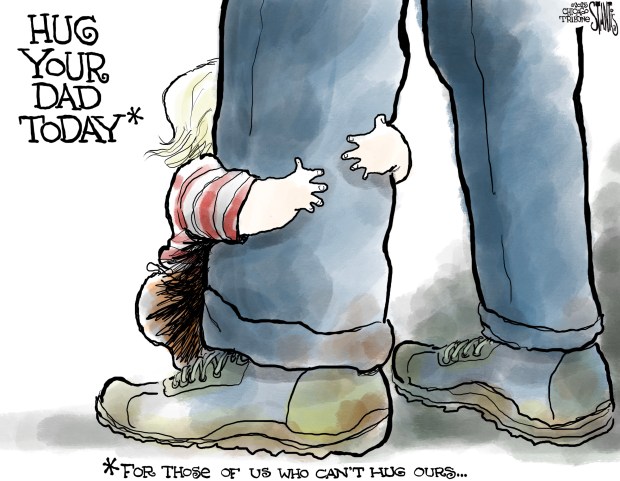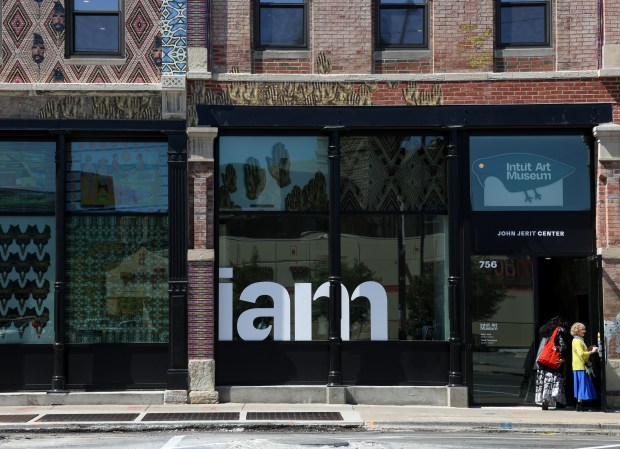Everyone in Chicago knows how much Mayor Brandon Johnson owes the Chicago Teachers Union for his electoral victory last year. So perhaps it shouldn’t be a surprise to find evidence that he makes sure to get CTU’s approval on important policy positions before sharing them with other political leaders in the state.
Still, we were a little taken aback when we read the Tribune’s excellent reporting last week on how a CTU lobbyist helped draft Johnson’s letter to Senate President Don Harmon in the waning days of the legislature’s spring session, which spared him the indignity of a new state law tying his hands on treatment of Chicago’s selective-enrollment schools.
The facts here aren’t flattering, assuming the mayor would like to be perceived as a strong leader capable of running his own administration and making his own decisions. They’re also dismaying for Chicagoans concerned about the influence of what some describe as the new Chicago political machine, helmed by the extreme leftists at CTU.
To summarize, the Tribune reported that CTU lobbyist Kurt Hilgendorf helped write the May 23 letter to Harmon that ended up providing sufficient assurance to the Senate leader that Johnson wouldn’t close or disproportionately reduce the budgets of Chicago’s selective-enrollment schools. The letter also promised that Johnson’s board of education wouldn’t change admission standards for those schools before 2027 when a fully elected Chicago school board is in place.
The bill, which would have barred the board from doing those same things by force of law, had earlier passed the Illinois House on an overwhelming 92-8 vote. Gov. J.B. Pritzker had said he would sign it. If the measure had gone to a Senate vote, passage was assured. After Harmon surprised many Springfield observers by not allowing the vote, he contended that Johnson’s written promises were more forceful than a law would have been and that people should trust Johnson to stay true to his pledges.
“This is a business based on trust,” Harmon said at the time. This page at the time warned Harmon, who represents Oak Park, that he was shouldering political responsibility for what comes next for Chicago’s selective-enrollment, magnet and charter schools. Early signs as the Chicago Board of Education gets to work on its fiscal 2025 budget aren’t particularly encouraging.
Records obtained by the Tribune through the Freedom of Information Act displayed an extraordinarily cozy relationship between the mayor’s office and CTU. The union was involved in drafting two versions of the letter to Harmon, according to the report. The first stopped short of promising much of anything and mainly iterated Johnson’s supposed benign intentions. That clearly didn’t pass muster with Harmon, so two days later the union helped again in crafting the version that got Harmon on Johnson’s side.
“As discussed, Kurt, Melanie and I took a stab at the letter,” wrote Michael Ciaccio, a Johnson administration official, to others in the mayor’s office, with the second version attached. (Melanie referred to Melanie Berks, another Johnson aide.)
The breezy, collegial tone is one people working in any office will recognize. There’s no explanation proffered in the letter of why the CTU lobbyist was involved so directly. It was just assumed — business as usual. “As discussed.”
All this while the union was readying to negotiate a new labor contract with the mayor they did so much to elect. Those negotiations are happening as we write.
The mayor’s people and CTU told the Tribune there’s nothing wrong with collaborating on education issues pending in Springfield. That’s the way these matters should be handled, the mayor’s office said.
Asking the union for its opinion on education issues isn’t necessarily a bad thing. But the mayor and his board of education ought to be the ones to have the final say on policy, not an interest group. At least that’s how it should be in normal practice, where a labor union isn’t calling the political shots in the nation’s third largest city.
A line gets crossed when that union helps to write letters to other public officials that are then dispatched with the mayor’s signature.
Something tells us issues surrounding Chicago’s schools and their administration will resurface in Springfield, perhaps as soon as the fall veto session. If and when they do, in the interest of efficiency, perhaps Harmon, Pritzker and House Speaker Emanuel “Chris” Welch ought to cut out the middleman and just ask CTU President Stacy Davis Gates to articulate the city’s positions.
Submit a letter, of no more than 400 words, to the editor here or email letters@chicagotribune.com.




